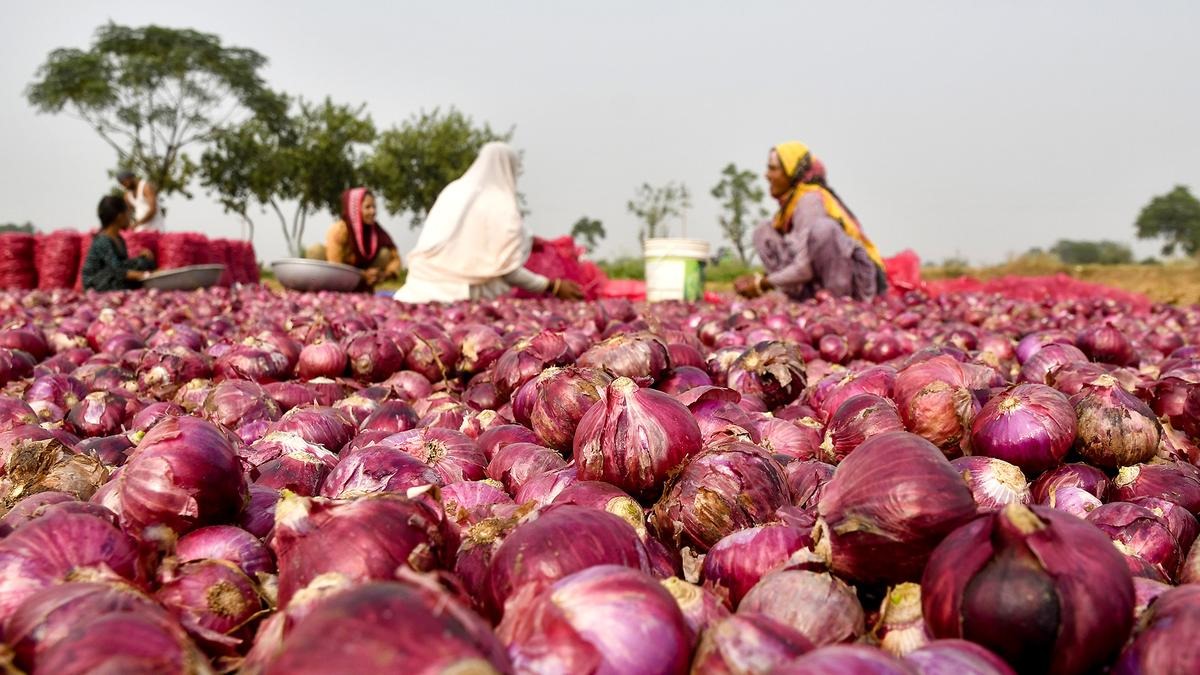Assam's Onion Export Duty Reduction Sparks Mixed Reactions in Major Producing State
The recent decision by the Union government to reduce the export duty on onions from 40% to 20% and eliminate the $550 per tonne minimum export price (MEP) has sparked mixed reactions in Maharashtra, the largest onion-producing state in India. This policy shift comes at a crucial time as the rabi onion harvest is nearing its end, and stakeholders are grappling with the implications of these changes

Background of the Export Duty Changes
Maharashtra is home to Lasalgaon, Asia’s largest wholesale onion market, and is a vital region for onion cultivation. The government’s initial imposition of a 40% export duty was aimed at stabilizing domestic prices and ensuring sufficient supply within the country. However, this move faced backlash from farmers and traders who argued that such high duties would lead to a significant drop in selling prices, adversely affecting their livelihoods
The onion export ban implemented in December 2023, coupled with the high export duty, had already created unrest among farmers. As the Lok Sabha elections approach, the government’s decision to slash the export duty appears to be a strategic move to appease the agricultural community and mitigate potential voter discontent
Reactions from Farmers and Traders
The reactions to the government’s decision have been varied:
Support from Some Farmers: A segment of farmers has welcomed the reduction in export duties, viewing it as a necessary step to improve their earnings. With the rabi crop nearing its end, they hope that increased export opportunities will lead to better prices in the local markets
Concerns from Others: Conversely, many farmers remain skeptical. They argue that the government’s previous policies have caused significant financial strain, and the recent changes may not be sufficient to address the long-standing issues in the onion trade. Farmers have expressed frustration over the government's inconsistent policies, which they believe have led to price crashes and financial losses
Political Maneuvering: Politicians in Maharashtra have been quick to claim credit for the government’s decision. With the elections looming, political leaders are eager to showcase their efforts in addressing farmers' grievances. However, many farmers feel that these political gestures are too little, too late, given the hardships they have faced over the past months
The Impact of Export Policies on Farmers
The onion sector in Maharashtra has been under immense pressure due to fluctuating government policies. Farmers have reported that the high production costs, coupled with low market prices, have made it difficult for them to sustain their operations. For instance, the cost of production often exceeds the selling price, leaving many farmers in a precarious financial situation
Moreover, the recent changes in export policy come amidst concerns about the quality of the onion crop due to unseasonal rainfall and diseases. Farmers have noted that the quality of their produce has declined, which further complicates their ability to compete in both domestic and international markets
Political Ramifications
The onion trade is not just an economic issue; it is deeply intertwined with the political landscape in Maharashtra. The state has a significant number of voters from farming backgrounds, particularly in onion-producing regions. As such, the dissatisfaction among farmers could have serious implications for political parties in the upcoming elections
Opposition parties have criticized the government’s intervention measures as inadequate, calling for a complete rollback of the export duty and minimum export price regulations. They argue that the government’s actions have disproportionately affected farmers, who are now facing the consequences of poor policy decisions.



